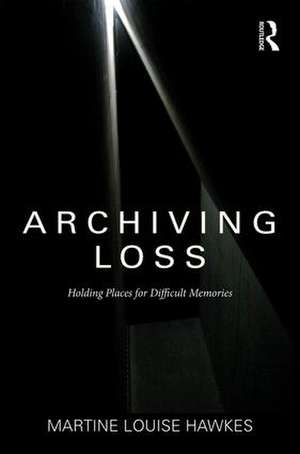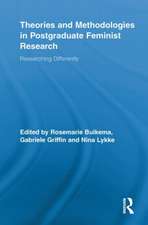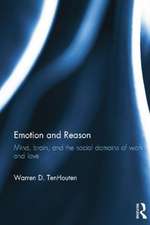Archiving Loss: Holding Places for Difficult Memories
Autor Martine Hawkesen Limba Engleză Hardback – 10 mai 2018
| Toate formatele și edițiile | Preț | Express |
|---|---|---|
| Paperback (1) | 256.67 lei 6-8 săpt. | |
| Taylor & Francis – 18 oct 2019 | 256.67 lei 6-8 săpt. | |
| Hardback (1) | 764.20 lei 6-8 săpt. | |
| Taylor & Francis – 10 mai 2018 | 764.20 lei 6-8 săpt. |
Preț: 764.20 lei
Preț vechi: 1027.40 lei
-26% Nou
Puncte Express: 1146
Preț estimativ în valută:
146.25€ • 152.49$ • 121.54£
146.25€ • 152.49$ • 121.54£
Carte tipărită la comandă
Livrare economică 21 martie-04 aprilie
Preluare comenzi: 021 569.72.76
Specificații
ISBN-13: 9781472449924
ISBN-10: 1472449924
Pagini: 154
Ilustrații: 6
Dimensiuni: 156 x 234 x 13 mm
Greutate: 0.45 kg
Ediția:1
Editura: Taylor & Francis
Colecția Routledge
Locul publicării:Oxford, United Kingdom
ISBN-10: 1472449924
Pagini: 154
Ilustrații: 6
Dimensiuni: 156 x 234 x 13 mm
Greutate: 0.45 kg
Ediția:1
Editura: Taylor & Francis
Colecția Routledge
Locul publicării:Oxford, United Kingdom
Cuprins
Introduction: Pouring Memory
Part I: The Archive
Chapter 1: Power in the Archives
Chapter 2: Expectations in the Archive
Chapter 3: Archives and Difficult Events
Part II: Archive Fever
Chapter 4: Counting to Discount
Chapter 5: The Language and Logic of the Archive
Part III: Remembering in the Archive
Chapter 6: Archival Filters
Chapter 7: The Archive as a Gate Opener
Chapter 8: Loss and the Archive
References
Index
Part I: The Archive
Chapter 1: Power in the Archives
Chapter 2: Expectations in the Archive
Chapter 3: Archives and Difficult Events
Part II: Archive Fever
Chapter 4: Counting to Discount
Chapter 5: The Language and Logic of the Archive
Part III: Remembering in the Archive
Chapter 6: Archival Filters
Chapter 7: The Archive as a Gate Opener
Chapter 8: Loss and the Archive
References
Index
Descriere
This book describes the archives whose language and logic have shaped our ways we remember and respond to difficult events and the ways in which we expect memory and loss to be coherent, credible, and lead to clear conclusions. In asking what is missing and what is found in the archives of difficult events this book argues for the necessity of looking more closely at other ways of remembering loss and archiving memory.











